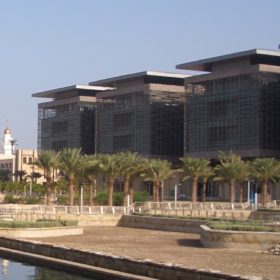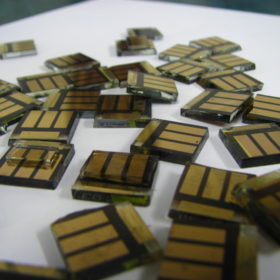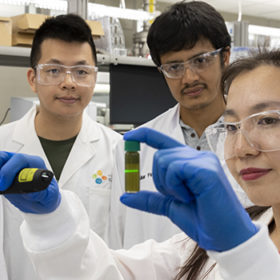An inverted perovskite cell with 22.3% efficiency
Saudi researchers have developed a cell which is said to exhibit improved structural and optoelectronic properties as well as enhanced carrier mobility and diffusion lengths. The feat was achieved by reducing voltage losses using a new passivation technique.
Watch how to improve perovskite solar cells in 2D!
Saudi researchers claim to have improved the thermal stability and moisture resistance of such devices by replacing 3D hybrid perovskite with two-dimensional compounds. They used organic compound ethanolamine, which is said to provide better results in slowing down the hot-carrier cooling process.
Stretching exercises for crystalline silicon solar cells
Researchers from Saudi Arabia’s King Abdullah University of Science and Technology have created flexible solar cells made of crystalline silicon. They claim to have stretched a crystalline silicon cell’s surface by around 95% while maintaining conversion efficiency of around 19%.
Tungsten disulfide helps organic solar cell reach 17% efficiency
Researchers from Saudi Arabia’s King Abdullah University of Science and Technology claim to have developed a highly performant organic PV cell using tungsten disulfide flakes a few atoms thick. The stability of the device, however, is still to be evaluated.
Organic dopants for a stable perovskite
Researchers at Saudi Arabia’s King Abdullah University of Science and Technology have demonstrated a method they say could improve the stability of perovskite structures. The group found adding an organic dopant served to increase the strength of chemical bonds between organic and inorganic elements of a perovskite.
Scientists set new efficiency record for single crystal perovskite
Scientists at Saudi Arabia’s King Abdullah University of Science Technology have set a new efficiency record of 21.09% for a single crystal perovskite. The researchers say this highlights a place for the technology to develop alongside the multicrystalline versions which are progressing toward commercialization.
Clean water and electricity from one system
Scientists at Saudi Arabia’s King Abdullah University of Science and Technology have demonstrated a system based on commercially available solar panels which can generate electricity and produce clean, drinkable water from seawater or otherwise contaminated sources.



